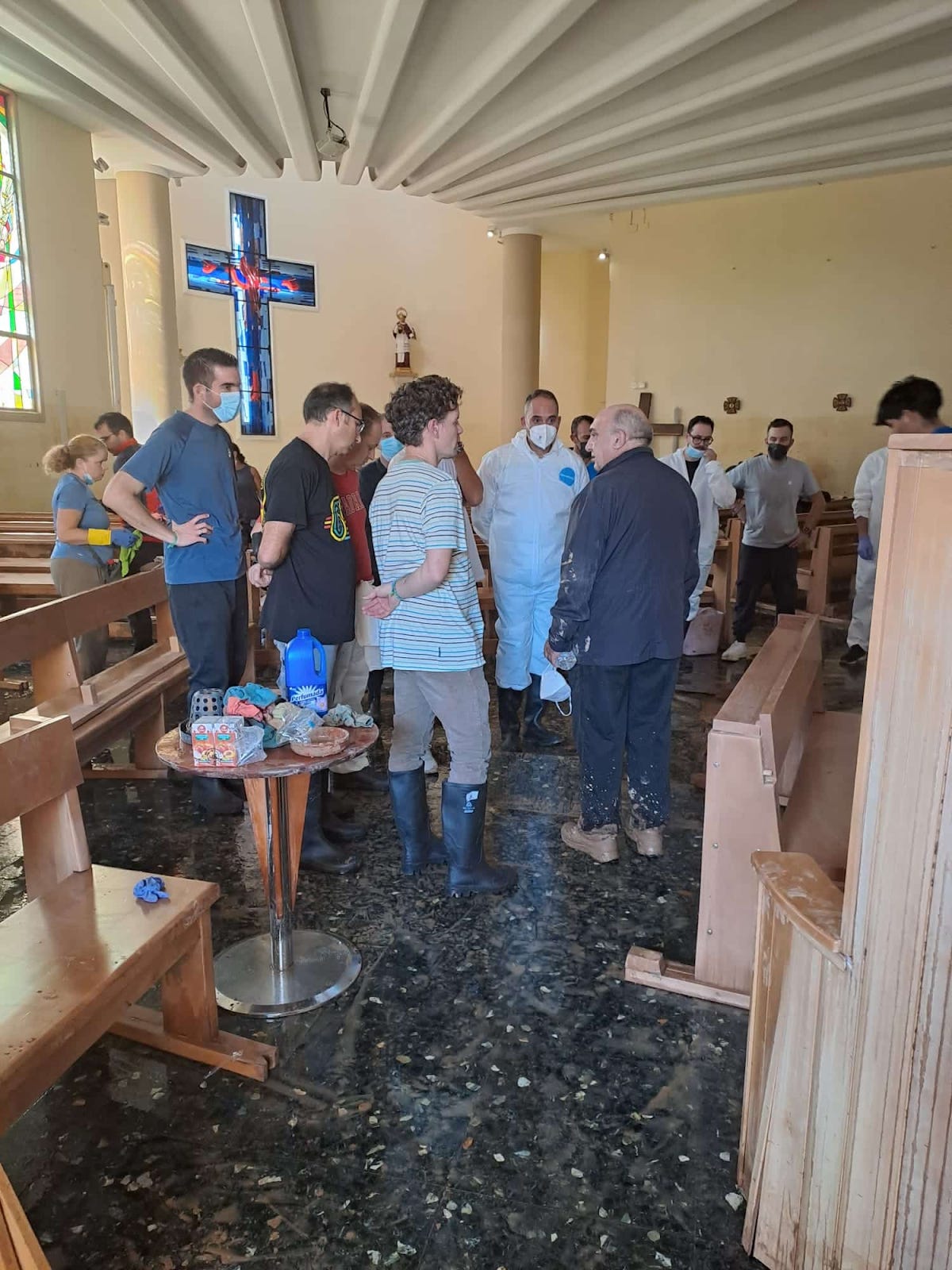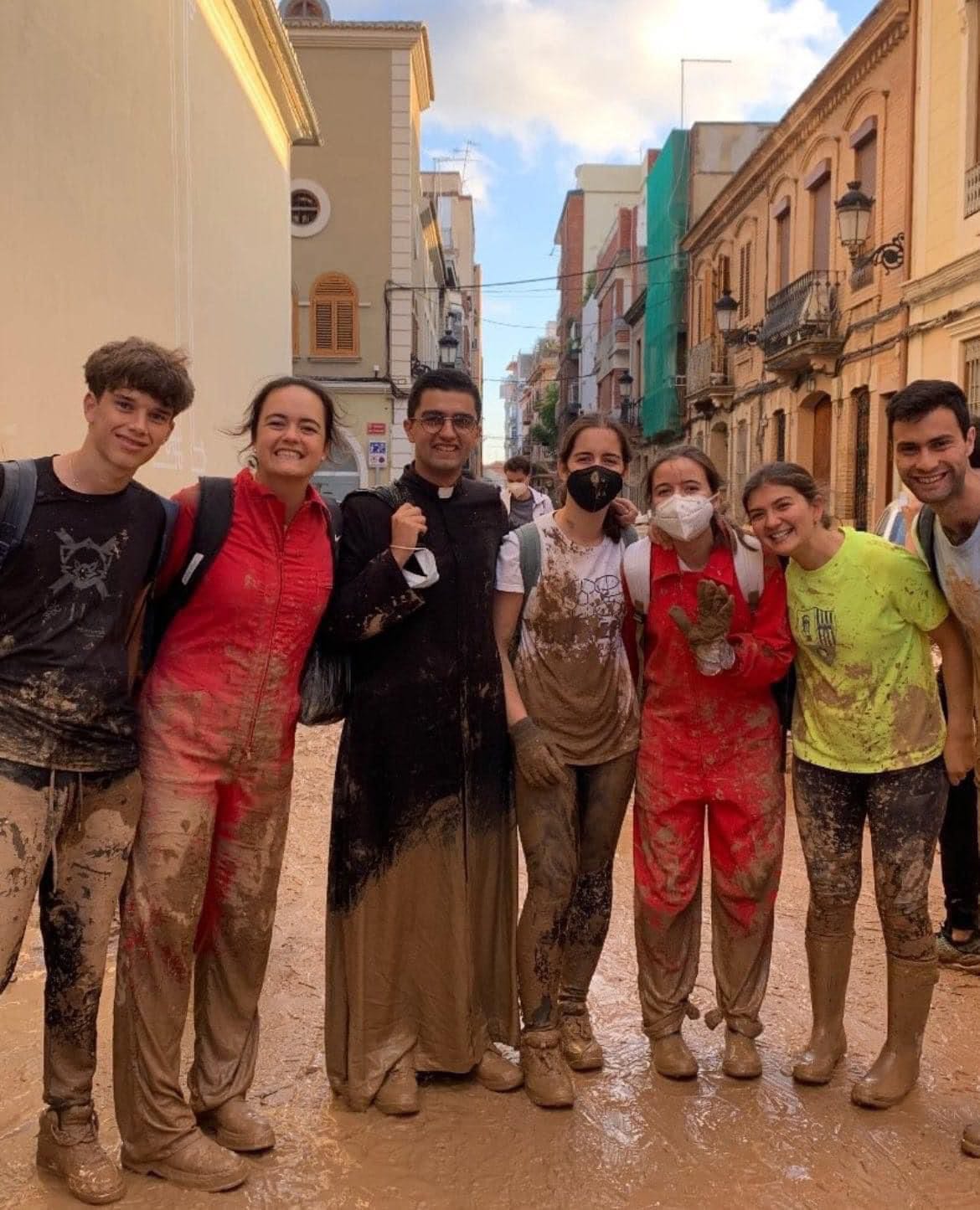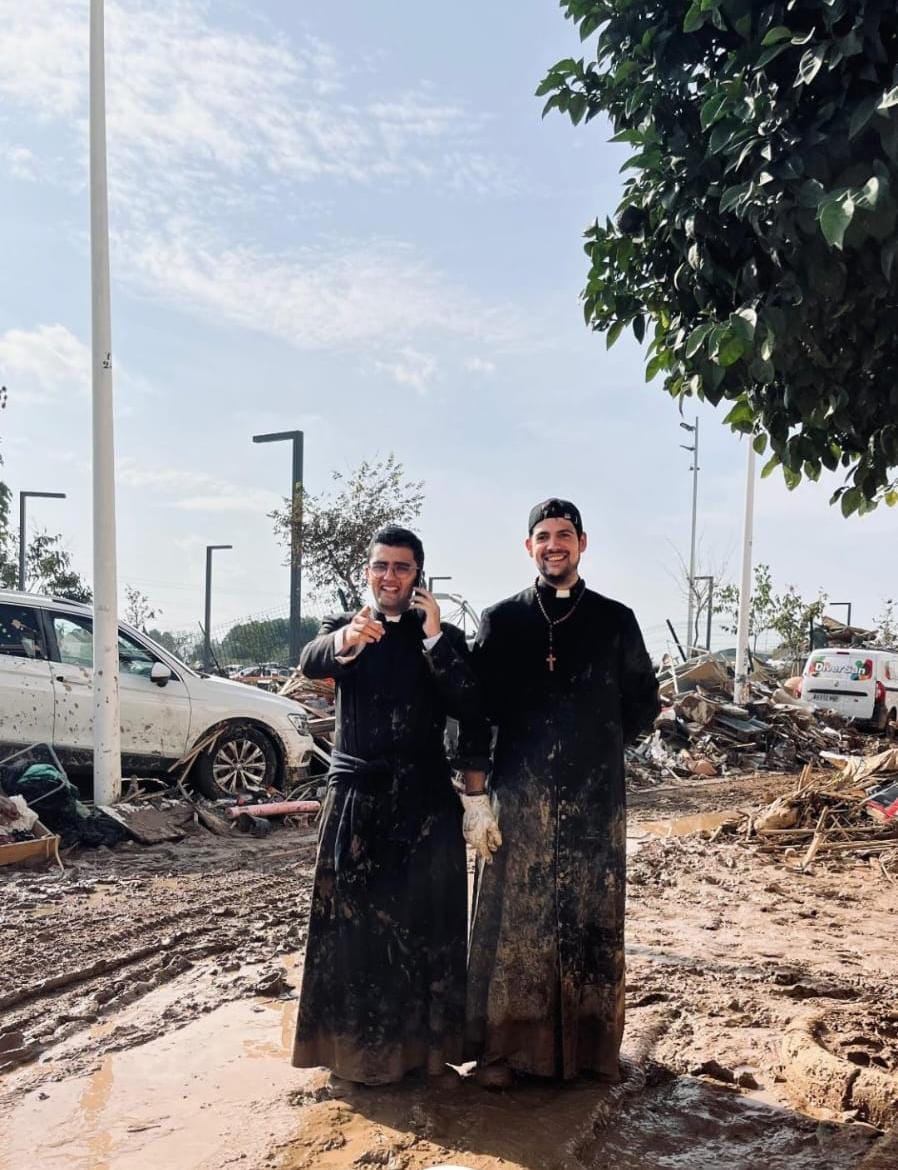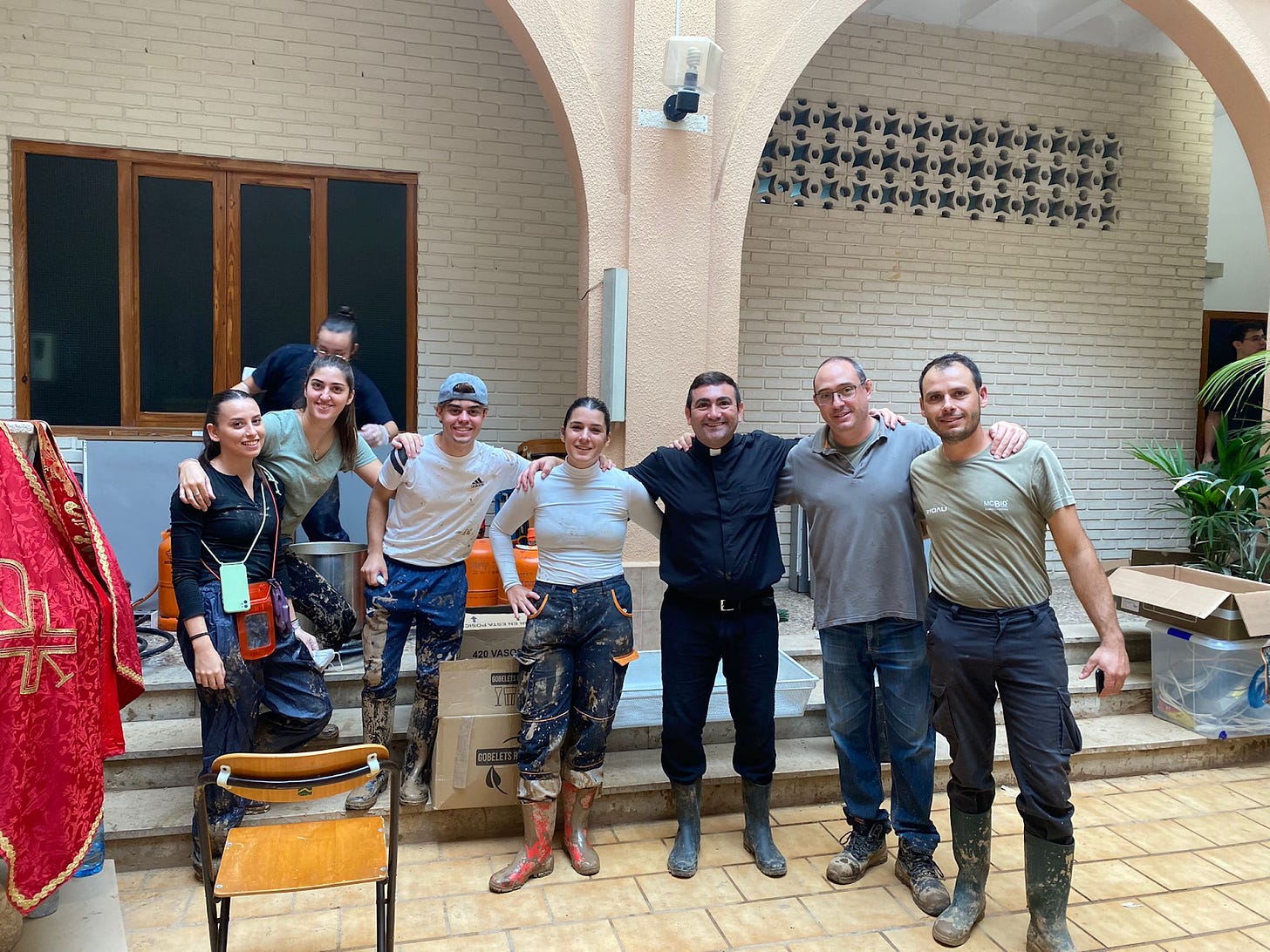Amid catastrophic flooding in eastern Spain, Valencia’s archbishop said the Church’s humanitarian aid efforts might “make credible” the Gospel among non-practicing Spaniards impacted by the flood.
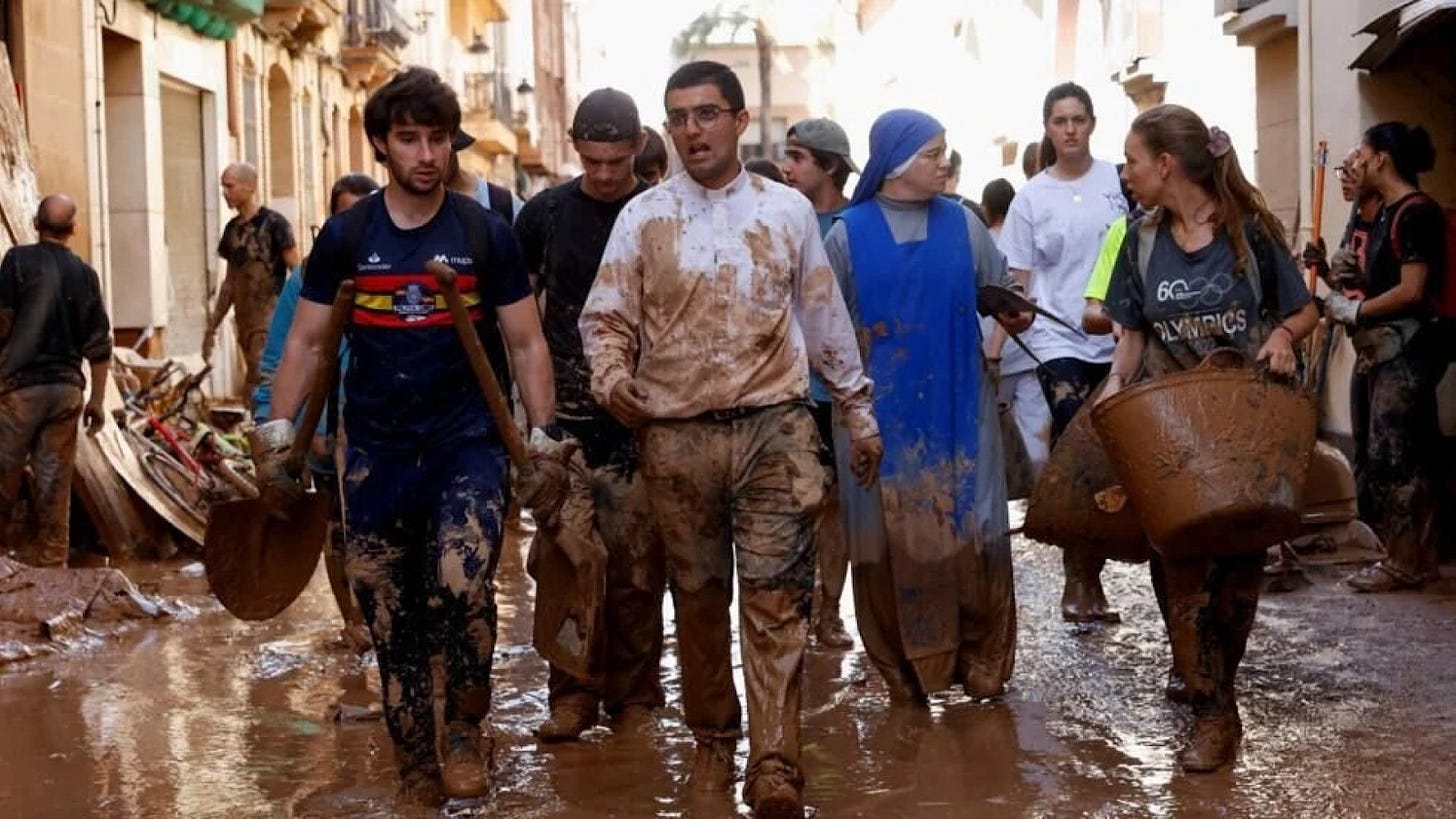
In the last two weeks, the eastern Spanish region of Valencia has been pounded by severe rains, resulting in floods that have left at least 215 people dead, 89 missing, and thousands homeless.
The flooding, which has spread throughout the Mediterranean coast of Spain and even Portugal, is due to a natural phenomenon called DANA, the Spanish acronym for Isolated High-Level Depression.
This region of Spain has been historically affected by the phenomenon, in which cold polar air becomes isolated and circulates at elevated altitudes. When the air collides with the warmer, more humid wind in the Mediterranean, it causes heavy storms, particularly at the beginning of the fall season.
In some parts of Valencia, a year’s equivalent of rain fell in just a few hours, causing thousands of people to be trapped in their houses or on rooftops.
The storm, also popularly known as cold drop, caused many rivers in the region to overflow, leaving entire towns under seven feet of water.
With thousands of people suffering in the aftermath of the flooding, Catholics are stepping up to rescue families, restore houses, and try to offer hope to the devastated victims of the natural disaster.
—
Archbishop Enrique Benavent of Valencia told The Pillar that all diocesan facilities in the area that were not made unusable by the flooding are being used in some way or another to help the victims.
“We have parishes and schools that were damaged, but all facilities that can be used are being used to help the victims. Most of our parishes, schools, and diocesan facilities have become distribution sites for essential products or welcome centers for the victims,” Archbishop Benavent said.
Many parishes and movements have also started organizing to help. Parishes that were unaffected by the flooding have connected with parishes that have suffered damage.
The parishes have collected information about what kind of help is needed at which sites, so when volunteers arrive, they can be directed to specific areas, to help with clean up, organizing relief supplies, or other efforts.
The archbishop said that the diocesan chapter of Caritas has been overwhelmed by the amount of material help it has received.
“We don’t have an adequate infrastructure to store all the goods people have donated. We’re having some difficulties with this because Caritas does not have big warehouses, but some businesses are now lending their industrial warehouses as storage space,” he said.
Fr. Óscar Benavent is the parish priest of the San Pío X parish in Algemesí, a town of 27,000 people, about 25 miles south of the city of Valencia.
The town is surrounded by the Magro and Jucar rivers, which overflowed with the heavy rains, leading the area to be among the most affected by the DANA.
“Our parish was the least affected one in the city, and still the water reached over one meter. In some other parts it was up to two meters of water,” Fr. Óscar told The Pillar.
“As the rivers flooded, water came with a lot of mud, which made it more dangerous and harder to shovel out of the houses,” he added.
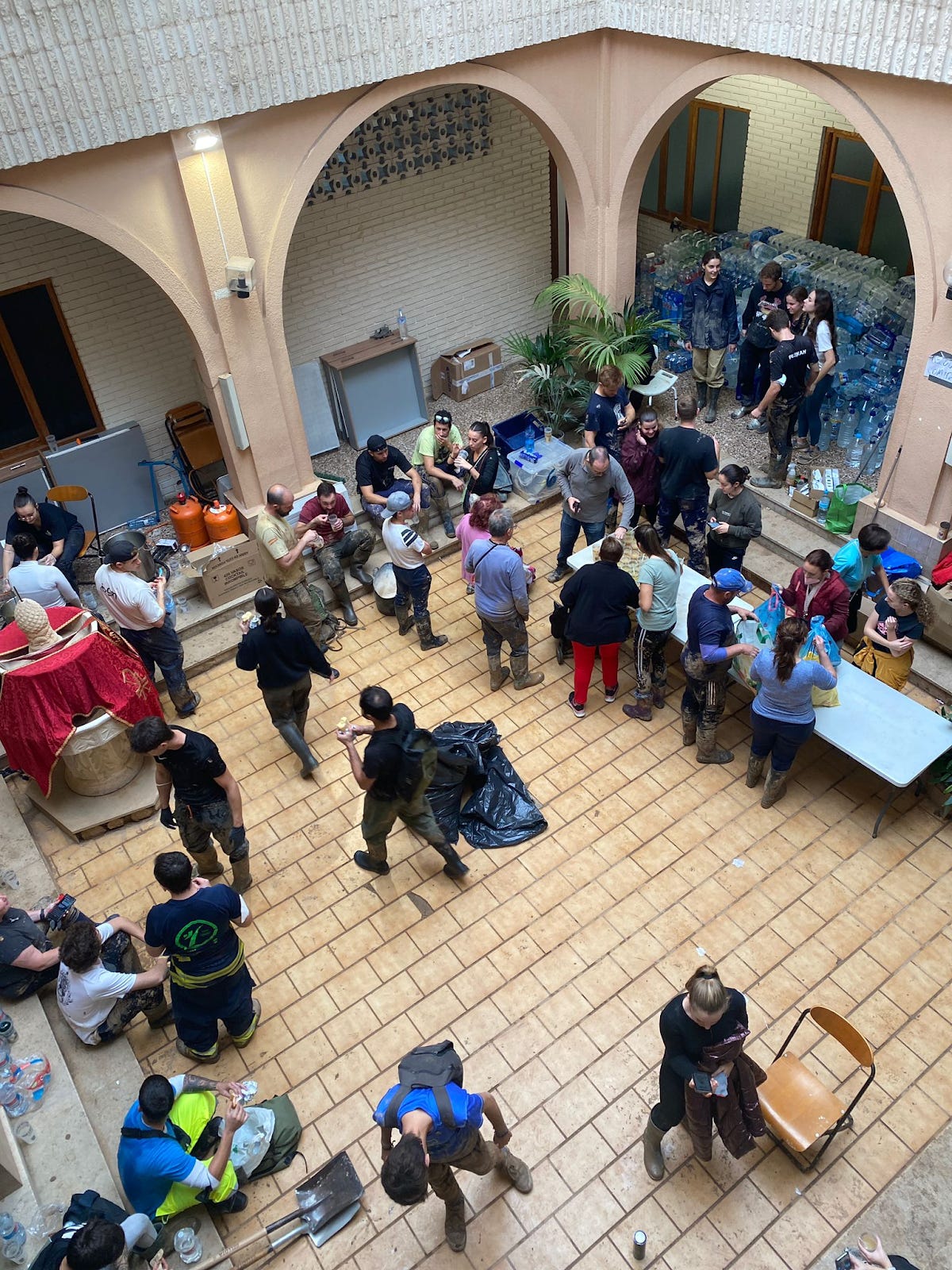
The parish buildings required a full day of shoveling to remove the mud. After that, Fr. Óscar and a group of volunteers began organizing relief efforts for the surrounding area.
“We were the least affected of the three parishes in Algamesí, so on Thursday I started celebrating Mass,” the priest explained.
“Supermarkets are still not open, as most of them were badly affected by the flooding and the mud. So, we’ve been using the parish to receive essential goods and give them away to those who need them,” he added.
“It’s shocking to see your barber, your butcher come asking for a plate of hot food, people with established businesses who now have lost it all,” he said.
“As we speak I am doing laundry for some parishioners who lost their washing machines; we’re doing all we can.”
Due to the large amounts of mud in the water, most houses have become unlivable. Moreover, the most affected areas are smaller towns, with large concentrations of elderly people.
“Not everyone has young people in their homes to take their appliances out of the place, to shovel the mud. So parishioners and some people coming from all over Spain got organized and are helping shovel the mud in houses, in offices, in businesses, wherever we’re needed,” Fr. Óscar said.
–
Fr. Federico Ferrando is 27 years old and is one of the younger priests in Valencia. He serves as the coadjutor at San Pascual Baylón parish. However, his parents and sister live about 30 minutes away in Paiporta, which became the epicenter of the disaster.
When he heard about the dire situation in Paiporta, he did not hesitate to go there and help.
“First of all, I’m a human being, so I’m called to be a responsible citizen that helps others. But I’m also a Christian, and the Lord has called me to give my life for the neediest as Christ did for us. And third, my parents are from Paiporta, so it’s my duty to honor them with my presence, and physical and spiritual help,” Ferrando told The Pillar.
“I have celebrated Mass for the living and the dead with utmost dignity, prayed the breviary and confessed anyone who has come asking for help these days,” the priest said.
“I’ve gifted rosaries of Our Lady of the Pillar to anyone I see and blessed anyone who asks for a blessing. I’ve had the gift of wearing my cassock or at least the clerical collar to show that the Church is present in the mud, getting our hands dirty, as Christ does,” he added.
Sister Maria Fons, SSVM, coordinates a group of formation for young people connected to the Institute of the Incarnate Word in the same parish where Ferrando serves.
She told The Pillar that she had the idea of organizing a group of volunteers from the parish to go every day to Paiporta and help in whatever way they could. She expected that some 20 or so young people from the group would sign up.
A day later, more than 700 people had volunteered.
“The volunteers meet at 6 a.m. in the parish in Valencia and go to Paiporta from there. They are going house-to-house, seeing if people need anything, if they need help shoveling, or need someone to bring them any goods,” she told The Pillar.
Fons is a member of the female branch of the Institute of the Incarnate Word, called Servants of the Lord and the Virgin of Matará. She lives in a monastery of the contemplative branch of the institute, although she is part of the active branch.
“The contemplative sisters are helping. They offered themselves to wash and fix all the liturgical vestments that could be recovered, they’re making new liturgical vestments, altar cloths, making new corporals and purificators,” she said.
–
Fr. Lucas Blanes is the pastor of two parishes in the town of Sagunto, north of Valencia.
He suggested that the most important aspect of the Church’s role after the floods has been the spiritual support it has provided to thousands.
“The Church has involved itself because it’s called to reflect and imitate the merciful love of Christ in the world. He said it himself: ‘Whatever you did for one of these least brothers of mine, you did for me’,” he said.
“We are seeing the face of Christ in each person we’re helping, and, as the Good Samaritan in the Gospel, we can’t but heal their wounds and put them on our shoulders.”
“The mere fact of going on the streets with my cassock and full of mud up to my eyebrows has been for many a sign of involvement and commitment of the Church. Many people, even non-believers, have come to us to thank us for being there for them,” he said.
“Jesus Christ descended into hell before the Resurrection, and the Church is doing the same these days,” he added.
Archbishop Benavent said that he believes people are thankful for the Church’s help, especially in areas where, for whatever reason, public authorities have barely been present.
“I have a cousin in one of the affected towns and he told me that the first people that came to their help were parish groups,” he said. “This makes credible the announcement of Christian hope.”
“We have dozens of priests in the hospitals with the families waiting for the bodies of their loved ones. A lot of people have seen their faith shaken up by this, but I’m surprised how many also see this as a reason to trust in God and never let go of him.”
Archbishop Benavent thinks this is the most important role the Church can play after the DANA.
“People are always thankful for our presence, they feel supported by the Church. We’re already celebrating the Eucharist in some parishes, in some cases outside the church. Even though it’s a presence that does not appear in the media, it is something that the victims are thankful for,” he said.
The archbishop also noted that they have felt the presence and support of Pope Francis.
“The pope called me once and we spoke about the situation. I told him about all the people that have lost their houses, their loved ones, and he was shocked with the images he has seen,” he said.
“We’ve felt his closeness with some gestures he’s had with us. On Sunday, he mentioned the disaster in the Angelus and during the audience on Wednesday, he had an image of Our Lady of the Forsaken, patroness of Valencia,” he added.
As reconstruction efforts move forward, the archbishop said the Church will continue to be present.
“We need to start thinking of the future,” he said. “There will be some state help, but many will not receive it, so we’re fundraising to help people remake their lives and help the parishes and diocesan schools that have been greatly affected.”
Fr. Óscar agreed that the Church must be a sign of hope in difficult times.
“In my first homily [after the floods], I said that God was not behind this disaster, it’s not God’s fault. But God is behind the thousands and thousands coming to help as they can: with their hands, their time, their money. They are the image of God’s love. This is the role of the Church: to heal, to feed, to visit, to help. Following the Gospel in these circumstances is a gift, because many have lost everything, but we’re in the first line of battle,” he said.
Ferrando said he hopes the call to help those in need will leave a lasting mark on the people who have signed up to help their neighbors.
“This has to be a wake up call for us as Christians,” he said. “This should shake us up to get us out of the mediocrity we were living. It’s holiness or nothing.”

